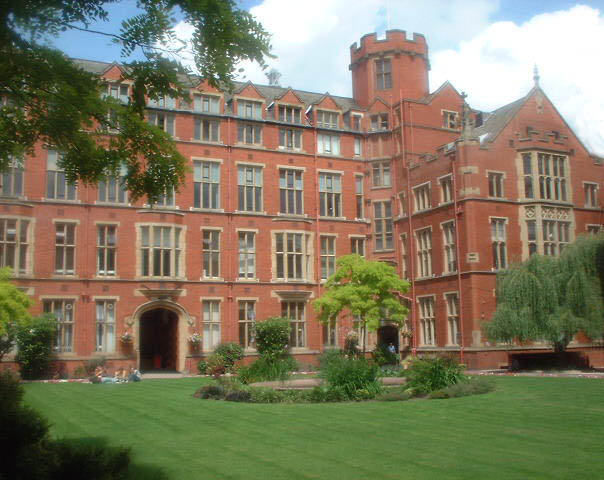Modern slavery
Sports Direct was named in three separate modern slavery trials within six months this year, all of which related to Polish migrants being sent to work at the firm’s Shirebrook warehouse through employment agencies.
Sports Direct was not accused of any wrong doing during the trials, however Unite said the corporation’s continued reliance on agency labour leaves it open to further abuses.
“Big workplaces, which rely on intermediaries and agencies to provide workers, are more open to worker abuse and exploitation,” Unite regional officer Luke Primarolo told the Guardian.
Nottinghamshire courts convicted members of three different criminal groups for modern slavery this year, after the groups placed migrant workers in employment agencies that supplied labour to Sports Direct’s headquarters.
Exploited migrants were also sent to work at a major vegetable producer that directly and indirectly supplies almost all of the UK’s big supermarkets.
None of the firms or agencies named in the trials were involved in any criminality, but the cases showed how modern slavery has become enmeshed in the UK’s economy.
The trials also demonstrated the conditions needed for slaves to enter Britain’s labour market. These include: a supply of vulnerable individuals and an outsourcing of labour that allows responsibility and oversight for workers to be spread out amongst a number of organisations and individuals.
Vulnerable
All three trials repeatedly heard about criminals targeting vulnerable people such as the homeless, alcoholics, those with a criminal record and those in need of work.
Last month Dariusz Parczewski was convicted of fraud and forced labour, after coercing his victims into slavery and claiming nearly ÂŁ1m in benefits over five years by opening bank accounts in their names.
The court heard how the Polish national and his family had duped one victim, Jaroslaw Kilian, by luring him from the city of Torun in Poland with the promise of work and accommodation in the UK.
Once Kilian had arrived in Britain, he was forced by the Parczewskis to live in filthy conditions with seven or eight other men in two small caravans in the drive of the family’s Nottingham home.
Kilian was signed up to a large employment agency and sent to work at Sports Direct’s Shirebrook warehouse. Kilian worked at the warehouse for nine months but could not speak to other workers because of his lack of English.
During that time, Kilian was forced to hand over half of all the wages he earned from the retailer. He told the court that he dare not escape from Parczewski because of the threat of violence.
A few weeks before the trial of Parczewski, whose wife and son were also convicted for forced labour and fraud, another Polish national, Sajmon Brzezinski was also convicted for modern slavery offences.
Two of Brzezinski’s victims worked at Sports Direct between 2011 and 2013, before leaving to work at a vegetable producer that supplies the major supermarkets.
One of the men was brought up in care and had learning difficulties, while the other had lost both parents and showed limited comprehension of his surroundings. Brzezinski also used violence to control his victims.
The third trial naming Sports Direct was that of Polish siblings Krystian and Erwin Markowski, who were convicted of trafficking vulnerable men from Poland in much the same fashion as the Parczeski’s.
Wages
Once under the brothers’ control in the UK, the men were forced to sign up to employment agencies and hand over most of their wages.
Eighteen victims were identified during the trial, some of whom were sent through an agency to work at Sports Direct. The men were made to sleep on urine soaked bedding, were kept under a curfew and controlled through violence.
Unite assistant general secretary Steve Turner said Sports Direct could improve vulnerabilities to slavery in its labour supply chain by “weaning itself off the use of agency labour”.
“Under the Modern Slavery Act companies with an annual turnover of £36m or more have a duty to publish a statement detailing policies to tackle the issue,” he said.
“Sports Direct has a modern slavery statement but amazingly makes no mention of weaning itself off agency labour, which was at the heart of the three slavery trials the firm was named in this year.”
Turner added, “It’s bad enough that Sports Direct, who ultimately control and must be held accountable for all employment across its operations, outsource the employment of thousands of ‘permanent employees’ to agencies to employ in horribly precarious and abusive work positions with little to no job security, reduced employment rights and very low pay.
“But these cases are a stark reminder that agency work can be used to mask the most terrible abuses in modern Britain. Work practices more akin to a Victorian workhouse than a 21st century workplace.”
“The only way Sports Direct can avoid even unwittingly having slaves in its workforce is to radically reduce the number of agency workers it uses.”
Direct employment call
Turner pointed out that Unite has long argued for the direct employment of all workers at Sports Direct.
He said, “It is the only way to end now institutionalised abuses and we will not stand by while workers are treated in the most inhumane way by Sports Direct or any other employer who thinks they can hide appalling employment conditions behind agency, casual or temporary employment when they could and should recruit permanent staff.”
A Sports Direct spokesman said forced labour was “often deeply hidden” and difficult to detect.
He told the Guardian, “We have policies in place that aim to prevent these types of behaviours, which, according to government research, may affect over 10,000 people in the UK.
“The conditions in the warehouse were described in open court as being of a proper nature during the case of the Markowski brothers.
“We are proactive in reporting anything suspicious to police in order to send a strong message that we will not tolerate these abuses.”
 Like
Like Follow
Follow


